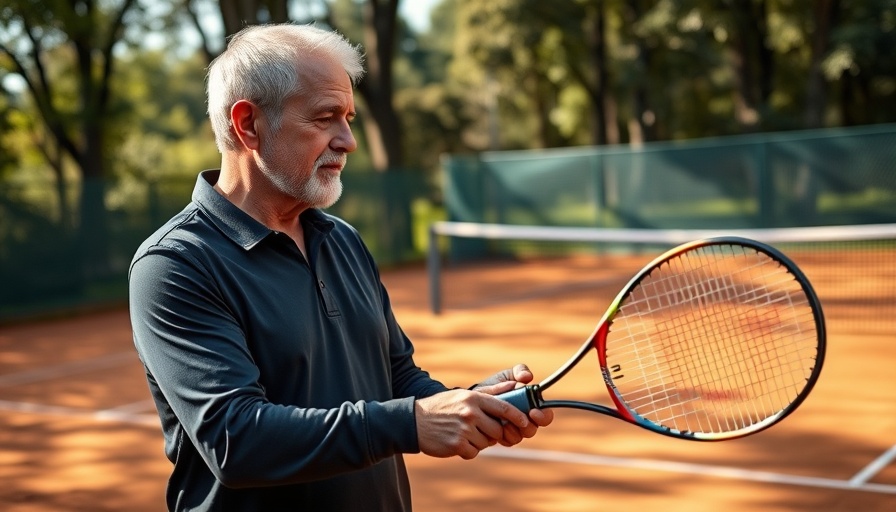
The Peculiar Joys of Tennis: A Double-Edged Sword
The world of tennis is often seen as a battleground of skill, strategy, and, yes, emotional highs and lows. From intense rivalries to moments of sheer joy, tennis can evoke a rollercoaster of feelings. In the video titled When you’re too happy… but then remember it’s not fair play, we get a peek into this tricky emotional terrain. The light-hearted moment showcased serves as a reminder of the complex psychological layers present in sports—especially in a game as nuanced as tennis.
In When you’re too happy… but then remember it’s not fair play, the discussion dives into the complex emotional landscape of tennis, exploring key insights that sparked deeper analysis on our end.
Why Are Our Emotions So Tied to Tennis?
Tennis, like life, is a series of precarious balances. On one hand, there are immense joys in winning; the thrill of nailing a difficult serve or making a perfect backhand can make players feel invincible. On the other hand, the video hints at a darker side: the unfairness of the game. Imagine hitting the winning shot only to realize the competition was flawed due to the opponent’s questionable tactics or a perceived rule-bending—the joy turns into confusion or frustration. This duality is what makes tennis an emotional crucible.
A Lesson in Fair Play: The Broader Impact
When considering the implications of fair play, we can observe how essential it is not just in tennis but across all competitive sports and life itself. Fair play fosters trust, respect, and a sense of community among players. The emotional reaction depicted in the video symbolizes a broader frustration many athletes face when instances of unfair play arise. It’s an reminder that the integrity of the game is crucial, impacting not just the participants but also the spectators who follow the game with passion.
Can We Take This Lesson Beyond Tennis?
This emotional dilemma isn’t isolated to tennis; it can extend into various aspects of our lives. Whether in academics, workplaces, or personal relationships, encounters with unfairness can lead to emotional upswings followed by feelings of disillusionment. How do we navigate these scenarios? It starts with creating cultures—both on and off the court—that prioritize integrity and fairness, ensuring that victories are not just about the ends, but the means as well.
Building Emotional Resilience in Players
How can tennis players and fans build resiliency against the emotional swings of the game? Engaging in mindfulness practices, understanding the importance of sportsmanship, and cultivating a supportive community can provide players with the tools necessary to manage their feelings, regardless of the competitive outcome. The essence of tennis—and indeed of any sport—is not only about winning; it’s about how we handle both triumphs and turmoil.
Final Thoughts: What’s Next?
In the world of competitive sports, tennis players often find themselves grappling with joy and unfairness, as highlighted in the video When you’re too happy… but then remember it’s not fair play. By acknowledging these emotional complexities, we can cultivate stronger athletes who excel both on the court and in life. Aspiring players should reflect on how they respond to emotional triggers, ensuring that resilience becomes as much a part of their training as their forehand. Tennis teaches us much about fairness. Let’s take these lessons to heart and apply them in every corner of our lives.
 Add Row
Add Row  Add
Add 




 Add Row
Add Row  Add
Add 

Write A Comment